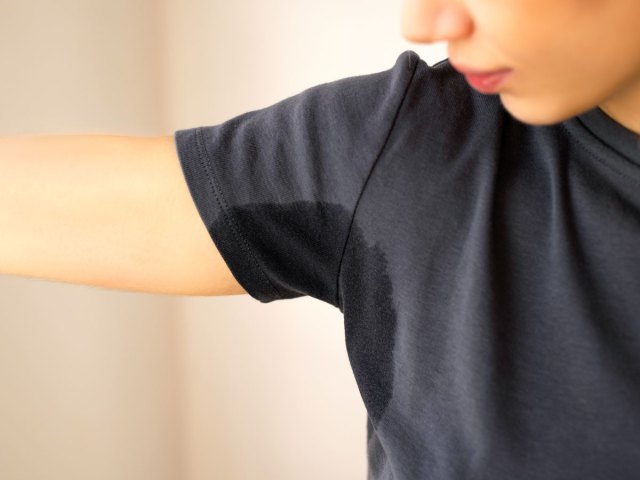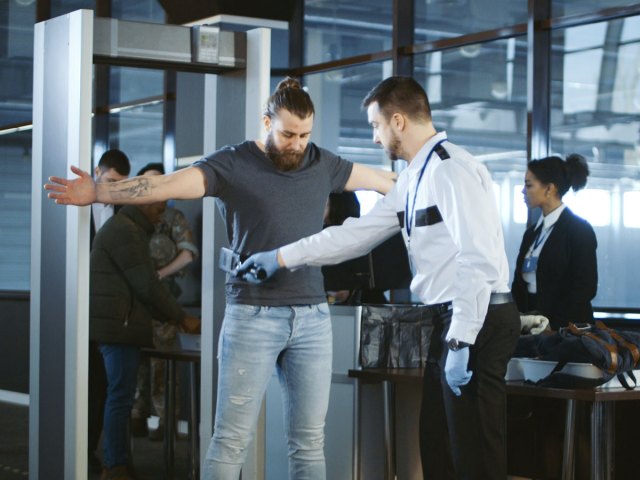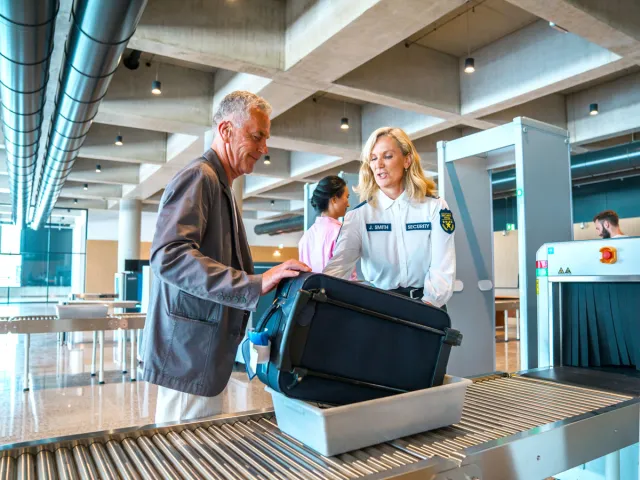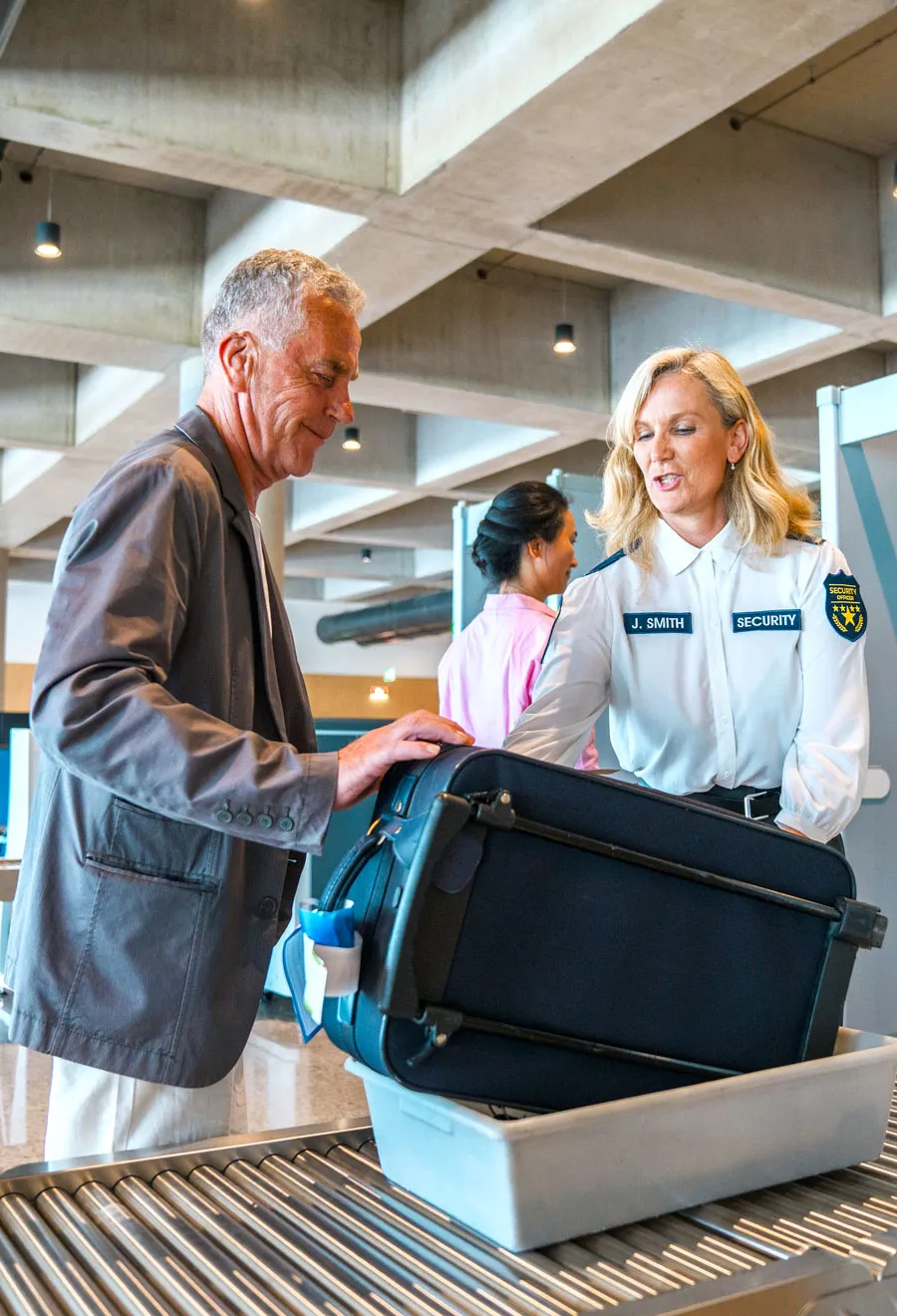Whether because you overslept, got caught in traffic, or simply didn’t allot enough time, you might end up sprinting through the airport trying to catch your flight. Sprinting can lead to sweating, and did you know that could inadvertently raise suspicions at airport security? While there’s obviously no rule that prohibits perspiring, excessive sweat is known to trigger alarms, and as a result, TSA agents may pull you aside to investigate. Here’s a closer look at why this happens and what you can do to avoid being flagged.
Why Sweat Raises Alarms

A recent CNN report investigated an uptick in passengers being pulled aside for excessive sweat, particularly during the busy summer travel season. According to a TSA spokesperson, “added moisture from a person’s body can alter the density of clothing, so it is possible perspiration may cause our Advanced Imaging Technology machines to alarm.” In other words, it’s not exactly the sweat itself causing issues, but rather the effect that sweat has on your clothing.
The TSA began introducing new AIT machines in 2007. They are programmed to flag any visual anomalies in a person’s appearance that could be indicative of a potential threat; however, the technology isn’t perfect. While the devices have undergone recent improvements — such as being upgraded to produce higher resolution scans — they’re still prone to errors. False alarms are frequently triggered by unexpected patterns and shapes, including sweat stains under the arms or on other parts of your clothing.
Airport security expert Shawna Malvani Redden explained to USA Today that it’s not the sweat itself triggering machines, but the large, dark, wet stains. The “darker shadow” is processed by the machines in the same way they would process the dark shape of a hidden weapon. Redden adds this is “due to the privacy software that protects passengers from having naked images of them produced by the scanners.” Because of this, the machines can offer details only “about an anomaly’s general location,” but lack any additional “information about exactly where or what the object might be.”
What if This Happens to You?

It’s frustrating to be pulled aside at airport security for any reason, but it’s especially annoying if it has to do with an unavoidable bodily process such as sweating. No traveler likes being singled out as part of an already-time-consuming screening process, and the stress may cause you to sweat even more.
There’s nothing to worry about too much, though. If a TSA agent pulls you aside for an additional screening, simply follow their instructions and you’ll be on your way before long. The officer will likely pat you down, perhaps putting an extra focus on the parts of your body that triggered the alarms. If you’d prefer some additional privacy instead of being patted down out in the open, you can request to be taken into a private room. Once the officer confirms that there’s nothing dangerous on your person, you’ll be free to proceed into the airport.
Other Potential Alarm Triggers

It’s not just excessive sweat stains that are causing travelers issues, as the newer AIT screening machines are frequently set off by other common, yet harmless triggers. Thicker clothing may prevent AIT machines from getting an accurate reading, and certain feminine products, prosthetics, and medical devices have also been known to set off alarms. Even some hairstyles and religious head coverings such as scarves and turbans have triggered extra screenings. Larger-bodied fliers have also reported being flagged more frequently than comparatively slim travelers. The machines sometimes also detect cysts, hernias, and other dense bumps underneath the skin.
Of course, while you can always wear thinner clothing, the rest of these potential problem areas are somewhat unavoidable. Just be aware of the heightened risk that you may set off the machine and be pulled aside for further screening. It’s a nuisance, yes, but if you arrive early at the airport, you’ll have plenty of time to make your flight — plus, you can follow our other tips to speed through security faster.
More from our network
Daily Passport is part of Inbox Studio, which publishes content that uplifts, informs, and inspires.
















